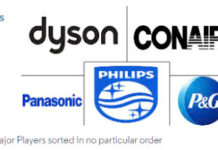Depressed by your appearance on video calls? Men and women alike are splashing out on face-lifts, lip-plumping and more
Many cosmetic surgeons had expected the pandemic to hammer business. Instead the industry is enjoying a Zoom-boom. The American Academy of Facial Plastic and Reconstructive Surgery reckons that the pandemic has led to a 10% increase in cosmetic surgery countrywide. In France, despite limits on elective procedures during the pandemic, cosmetic surgeries are up by nearly 20%, estimates the French Society of Aesthetic Plastic Surgeons. For Ashton Collins, the boss of Save Face, a firm in Cardiff that refers people seeking minimally invasive cosmetic treatments to the 852 (and counting) practitioners it has accredited across Britain, business is “through the roof”. In Italy, Pier Andrea Cicogna of Studio Cicogna, a plastic-surgery clinic in Treviso, says his revenue has risen by nearly a third despite more than three months of closure.
Every day can be Christmas
Apart from face-envy, other forces are at play. In the age of teleworking, patients can recover inconspicuously at home as bruises and swelling fade. It helps that professionals, the biggest clients for pricey cosmetic surgery, are more likely to work from home than many others. In normal times finagling time off work is a big hurdle (which is why Christmas breaks have traditionally been the high season for cosmetic surgery). Recuperation is made easier by the widespread use of face-masks, which neatly hide away the signs of surgery to the nose, chin, cheeks and jawline, as well as the “resurfacing” of facial skin and lip-plumping.
Money not spent on clothes, evenings out and travel has financed much of this. Gains in the stockmarket have also helped, says Alan Matarasso, whose clinic in New York is “being stretched” by requests for surgery. Intriguingly, Dr Matarasso, a former president of the American Society of Plastic Surgeons, thinks a more ethereal force is also at work: by casting light on “the fragility of life”, the pandemic is imbuing people with greater desire to squeeze more out of whatever time they have left.
Covid-19 has highlighted our helplessness, concurs Richie Chan, the head of cosmetic surgery at an OT&P Healthcare clinic in Hong Kong, which has enjoyed a roughly 15% rise in procedures; as a result people have become keener to exert control over their bodies through elective surgery. Pierfrancesco Cirillo, head of the Italian Association of Aesthetic Plastic Surgery in Rome, points to previous increases around the world in minimally invasive procedures following the 9/11 attacks (about 6%) and the global financial crisis (10%). The pandemic, he says, has coincided with a record rise in cosmetic surgery of about 12% in Italy.
Surgeons marvel at another recent change: before the pandemic, one in ten of Studio Cicogna’s surgery patients were men. Now it’s one in five. Most operations are for eyelids, noses and “love handles” liposuction. For minimally invasive skin rejuvenation, the proportion of male clients has risen from roughly one in eight to nearly half. In Britain men now account for about 40% of skin rejuvenations, says Save Face.
Zoom gloom
By highlighting her defects when she made calls for her PR job, Zoom had become demoralising, recalls a 47-year-old single mum in Milan: “I felt uglier.” Being stuck at home without occasion to dress up didn’t help. “I really needed to do something to feel better,” she says. Eyelid surgery wiped “ten years off my face”, she reports; the operation was “psychologically therapeutic”.
Such satisfaction is common, but it is not universal. Some psychologists fear that the boom in beauty treatments is encouraging an obsessive-compulsive disorder sometimes called dysmorphia. Sufferers obsess over an imagined or exaggerated body flaw. This can be magnified by a morose mood and a lack of normal social interaction—not to mention more time spent comparing oneself to others. As a result, Dr Cirillo says, cosmetic surgeons must work harder to turn down those with a pathologically confused self-image.
A less acute but more common problem is that a growing share of those asking for surgery seek an unattainable appearance. Dr Cirillo worries about the emergence of a “sort of supermarket” for aesthetic surgery in which less-principled surgeons accept patients with unhealthy or unrealistic aspirations. As they cash in, surgeons would be wise to avoid would-be patients who show up with photos of an envied celebrity. Success is more likely with those who, less ambitiously, present pictures of their younger selves.



